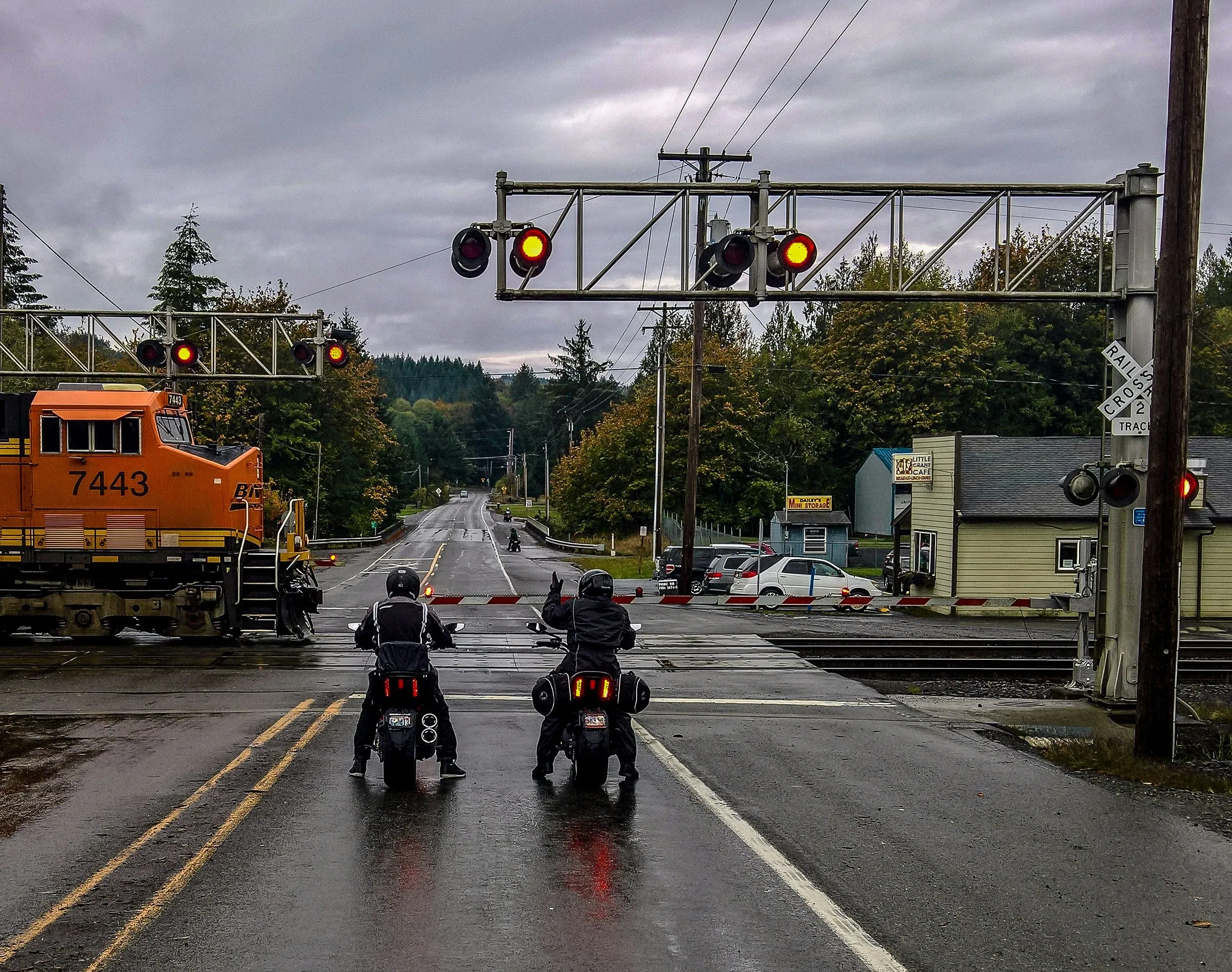
Vehicle & Traffic Law § 1176 “Obstructing Railroad Crossing”
New York State Vehicle and Traffic Law (VTL) § 1176 prohibits motorists from entering a railroad crossing when the traffic is backed up. The law requires motorists to ensure they will be able to exit the railroad crossing before entering the railroad crossing. The reasons for this law are obvious. Such tickets are commonly issued by officers of the Metropolitan Transportation Authority (MTA) Police Department. This police department is assigned to monitor railroad tracks and has the authority to issue such tickets.
Pleading guilty or being found guilty of VTL 1176 will put five points on your New York driving record. The fine is determined by the judge with the maximum being $150 + $93 surcharge. The biggest cost is the increased insurance rates that comes along with such violations appearing on your driving record.
Statute
The wording of VTL § 1176 is as follows:
§ 1176. Obstructing highway-railroad grade crossings. No person shall drive a vehicle onto the railroad tracks at a highway-railroad grade crossing unless there is sufficient undercarriage clearance to traverse the crossing and adequate space on the opposite side of the crossing to accommodate the vehicle he and/or she is driving, notwithstanding the indication of any traffic control device which would permit him and/or her to proceed.
Fighting an 1176 Ticket
Before pleading guilty to VTL 1176, it probably makes sense to consult with a traffic ticket attorney. If you want to avoid the points from going on your record, then you need to plead Not Guilty. It is not unethical or immoral to plead not guilty to a traffic ticket even when you committed the alleged violation. Pleading Not Guilty merely means that you want the police officer to prove the case in court as is your constitutional right. An attorney can go to court in your place and is often able to obtain a plea bargain that would reduce the points in a significant way, allowing you to avoid the increased insurance rates that comes along with an 1176 violation. You may then be able to avoid points entirely. For more information you can contact the Benjamin Goldman Law Office.
Benjamin Goldman Law Office
The Benjamin Goldman Law Office is a New York State law firm that exclusively practices Traffic Law. We are mainly based out of Valley Stream and have experience fighting 1176 tickets on Long Island. We will be glad to take on your ticket.
The Benjamin Goldman Law Office opened in 2011 and since then has expanded to provide legal services across New York State. Our firm helps motorists in all the state regions including North Country, Capital District, Mohawk Valley, Finger Lakes, Central New York, Western New York, Southern Tier, Catskill Mountains, Hudson Valley, Upstate New York, and New York City. Attorneys at our firm are experienced in Traffic Law and our team welcomes new cases, whether easy or difficult. The Benjamin Goldman Law Office provides all motorists with a free consultation. We can be reached by website submission, text message, email, or phone call. Our team looks forward to working with you on your case.
Other Traffic Violations We Handle
If you or a loved one were harmed by a motorist who was stuck in a railroad crossing, you can consult with the attorneys at the Sternberg Injury Law Firm
Disclaimer: All the content of this website has been prepared by Benjamin Goldman Law Office PC for informational purposes only and does not constitute legal advice. The information on this website shall not be construed as an offer to represent you, nor is it intended to create, nor shall the receipt of such information constitute, an attorney-client relationship. Our hope is that you will find the information useful and informative, and we would be happy to communicate with you and answer any questions you may have about our legal services. Readers should not act upon the information on this website, or decide not to act based upon the information on this website, without first seeking appropriate professional counsel from an attorney licensed in the home state of the drivers license of the person who received the relevant traffic citation.